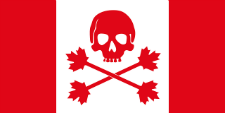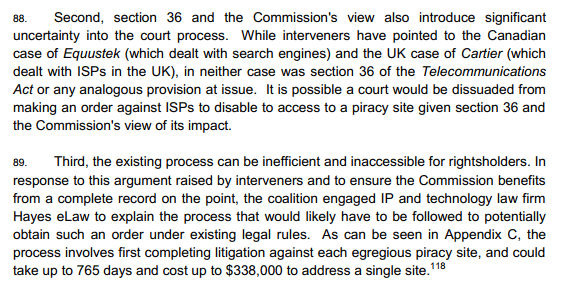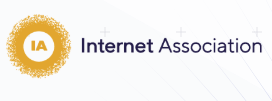ExtraTorrent Replacement Displays Warning On Predecessor’s Shutdown Anniversary
vendredi 18 mai 2018 à 10:23 Exactly one year ago, millions of users in the BitTorrent community went into mourning with the shock depature of one of its major players.
Exactly one year ago, millions of users in the BitTorrent community went into mourning with the shock depature of one of its major players.
ExtraTorrent was founded in back in November 2006, at a time when classic platforms such as TorrentSpy and Mininova were dominating the torrent site landscape. But with dedication and determination, the site amassed millions of daily visitors, outperforming every other torrent site apart from the mighty Pirate Bay.
Then, on May 17, 2017, everything came crashing down.
“ExtraTorrent has shut down permanently,” a note in the site read. “ExtraTorrent with all mirrors goes offline. We permanently erase all data. Stay away from fake ExtraTorrent websites and clones. Thx to all ET supporters and torrent community. ET was a place to be….”
While ExtraTorrent staff couldn’t be more clear in advising people to stay away from clones, few people listened to their warnings. Within hours, new sites appeared claiming to be official replacements for the much-loved torrent site and people flocked to them in their millions.
One of those was ExtraTorrent.ag, a torrent site connected to the operators of EZTV.ag, which appeared as a replacement in the wake of the official EZTV’s demise. Graphically very similar to the original ExtraTorrent, the .ag ‘replacement’ had none of its namesake’s community or unique content. But that didn’t dent its popularity.

At the start of this week, ExtraTorrent.ag was one of the most popular torrent sites on the Internet. With an Alexa rank of around 2,200, it would’ve clinched ninth position in our Top 10 Torrent Sites report earlier this year. However, after registering the site’s domain a year ago, something seems to have gone wrong.
Yesterday, on the anniversary of ExtraTorrent’s shutdown and exactly a year after the ExtraTorrent.ag domain was registered, ExtraTorrent.ag disappeared only to be replaced by a generic landing page, as shown below.

This morning, however, there appear to be additional complications. Accessing with Firefox produces the page above but attempting to do so with Chrome produces an ominous security warning.

Indeed, those protected by MalwareBytes won’t be able to access the page at all, since ExtraTorrent.ag redirects to the domain FindBetterResults.com, which the anti-malware app flags as malicious.
The change was reported to TF by the operator of domain unblocking site Unblocked.lol, which offers torrent site proxies as well as access to live TV and sports.
“I noticed when I started receiving emails saying ExtraTorrent was redirecting to some parked domain. When I jumped on the PC and checked myself it was just redirecting to a blank page,” he informs us.
“First I thought they’d blocked our IP address so I used some different ones. But I soon discovered the domain was in fact parked.”
So what has happened to this previously-functioning domain?
Whois records show that ExtraTorrent.ag was created on May 17, 2017 and appears to have been registered for a year. Yesterday, on May 17, 2018, the domain was updated to list what could potentially be a new owner, with an expiry date of May 17, 2019.
Once domains have expired, they usually enter an ‘Auto-Renew Grace Period’ for up to 45 days. This is followed by a 30-day ‘Redemption Grace Period’. At the end of this second period, domains cannot be renewed and are released for third-parties to register. That doesn’t appear to have been the case here.
So, to find out more about the sudden changes we reached out to the email address listed in the WHOIS report but received no response. Should we hear more we’ll update this report but in the meantime the Internet has lost one of its largest torrent sites and gained a rather pointless landing page with potential security risks.
Source: TF, for the latest info on copyright, file-sharing, torrent sites and more. We also have VPN reviews, discounts, offers and coupons.
 FairPlay Canada, a coalition of copyright holders and major players in the telco industry, wants to institute a national pirate site blocking scheme.
FairPlay Canada, a coalition of copyright holders and major players in the telco industry, wants to institute a national pirate site blocking scheme. 
 In April 2017, the first episode of the brand new season of Netflix’s Orange is the New Black was uploaded to The Pirate Bay, months ahead of its official release date.
In April 2017, the first episode of the brand new season of Netflix’s Orange is the New Black was uploaded to The Pirate Bay, months ahead of its official release date. Last month, MPAA Chairman and CEO Charles Rivkin used the Facebook privacy debacle to voice his concern about the current state of the Internet.
Last month, MPAA Chairman and CEO Charles Rivkin used the Facebook privacy debacle to voice his concern about the current state of the Internet. 